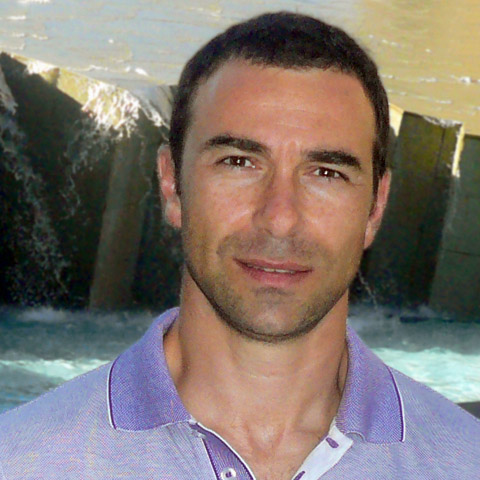KLI Colloquia are invited research talks of about an hour followed by 30 min discussion. The talks are held in English, open to the public, and offered in hybrid format.
Fall-Winter 2025-2026 KLI Colloquium Series
Join Zoom Meeting
https://us02web.zoom.us/j/5881861923?omn=85945744831
Meeting ID: 588 186 1923
25 Sept 2025 (Thurs) 3-4:30 PM CET
A Dynamic Canvas Model of Butterfly and Moth Color Patterns
Richard Gawne (Nevada State Museum)
14 Oct 2025 (Tues) 3-4:30 PM CET
Vienna, the Laboratory of Modernity
Richard Cockett (The Economist)
23 Oct 2025 (Thurs) 3-4:30 PM CET
How Darwinian is Darwinian Enough? The Case of Evolution and the Origins of Life
Ludo Schoenmakers (KLI)
6 Nov (Thurs) 3-4:30 PM CET
Common Knowledge Considered as Cause and Effect of Behavioral Modernity
Ronald Planer (University of Wollongong)
20 Nov (Thurs) 3-4:30 PM CET
Rates of Evolution, Time Scaling, and the Decoupling of Micro- and Macroevolution
Thomas Hansen (University of Oslo)
RESCHEDULED: 18 Dec (Thurs) 3-4:30 PM CET
Chance, Necessity, and the Evolution of Evolvability
Cristina Villegas (KLI)
8 Jan 2026 (Thurs) 3-4:30 PM CET
Embodied Rationality: Normative and Evolutionary Foundations
Enrico Petracca (KLI)
15 Jan 2026 (Thurs) 3-4:30 PM CET
On Experimental Models of Developmental Plasticity and Evolutionary Novelty
Patricia Beldade (Lisbon University)
29 Jan 2026 (Thurs) 3-4:30 PM CET
Jan Baedke (Ruhr University Bochum)
Event Details

Topic description:
Multicellularity raises conceptual challenges for understanding organisms. Although multicellular (MC) systems come in different characters and in various types and forms, almost all MC associations (from biofilms to full-fledged MC systems) exhibit some kind of integration that in turn allows them to maintain their organization and to increase the possibility of survival of their constituting units and of the systems themselves, as a whole. Notwithstanding the resulting adaptation at the global level, I argue (contrary to neo-Darwinian and adaptationist approaches) that not all types of MC integration can be considered organismal. Specifically, I will argue that other explanatory frameworks reduce integration to adaptation, and as such: (i) they do not bear any distinctive power with respect to the strikingly different characters of multicellularity; (ii) they cannot fully account for nor distinguish between the individual and/or the organismal status of MC systems. I discuss three types of coordination of the interaction of MC systems with their environments (representing almost all cases in nature), and I explain that each coordination yields qualitatively different organizational requirements. I suggest that the related interactions are genuinely attributable to the whole MC organization only when the latter is integrated on the basis of a special regulatory subsystem. I argue that in contrast to all other MC cases as well as to all unicellular organizations, the endogenous production and operation of such a regulatory subsystem entails a genuine form of ‘functional integration.’ I discuss in detail the ontological consequences of such an MC organization with respect to both its constitutive (developmental and metabolic) and interactive dimension. I conclude with several implications regarding: (a) the transition from uni- to multi-cellular organizations; (b) the relation between adaptation and normativity at the MC level; (c) the distinction between functional individuals and organisms; (d) the individual/organismal status of several ‘in-between’ cases of MC systems; (e) the evolution of organismal complexity in biology.
Biographical note:
Argyris Arnellos is a Postdoctoral Fellow at the KLI and was previously a Marie Curie Postdoctoral Fellow at the IAS-Research Centre for Life, Mind and Society (Department of Logic and Philosophy of Science, University of the Basque Country). He was also a researcher and lecturer in the department of Product and Systems Design Engineering at the University of the Aegean in Syros, Greece. His current line of research is centered on the role of the notion of autonomy in integrating constitutive and interactive aspects of multicellular organisms, with a focus on developmental regulatory mechanisms and their role in the self-construction of multicellular organizations, and in the formation of complex body plans and their resulting behaviors. His PhD was on The Emergence of Meaning in Autonomous Agents and in Artificial Environments. He has published in several scientific journals and participated in numerous international and national conferences in the areas of autonomous and complex systems, 2nd-order cybernetics, philosophy of biology, philosophy of mind, and interactivism, design theory, artificial intelligence, and human-computer interaction.


